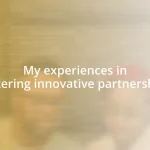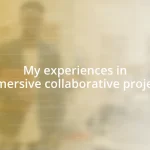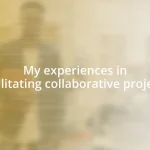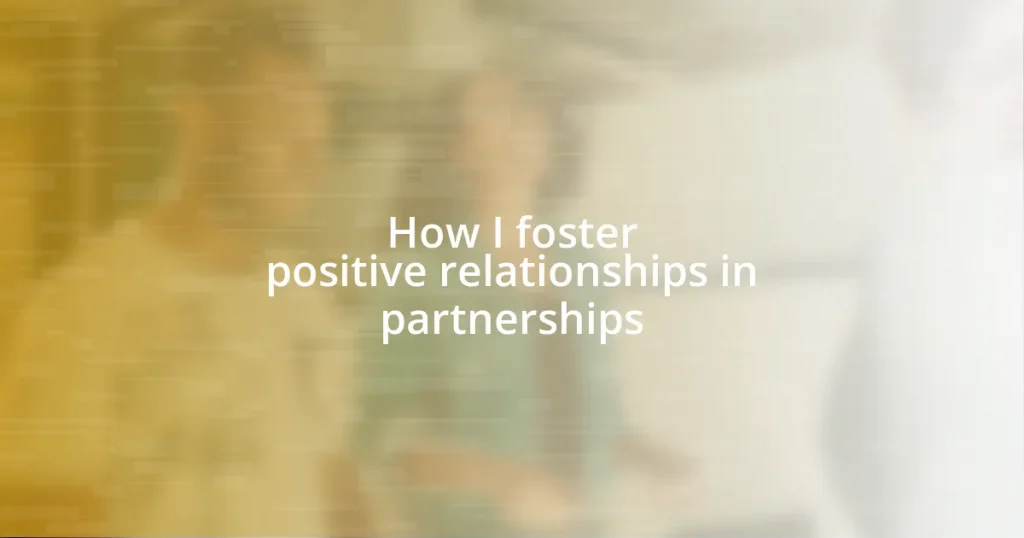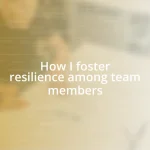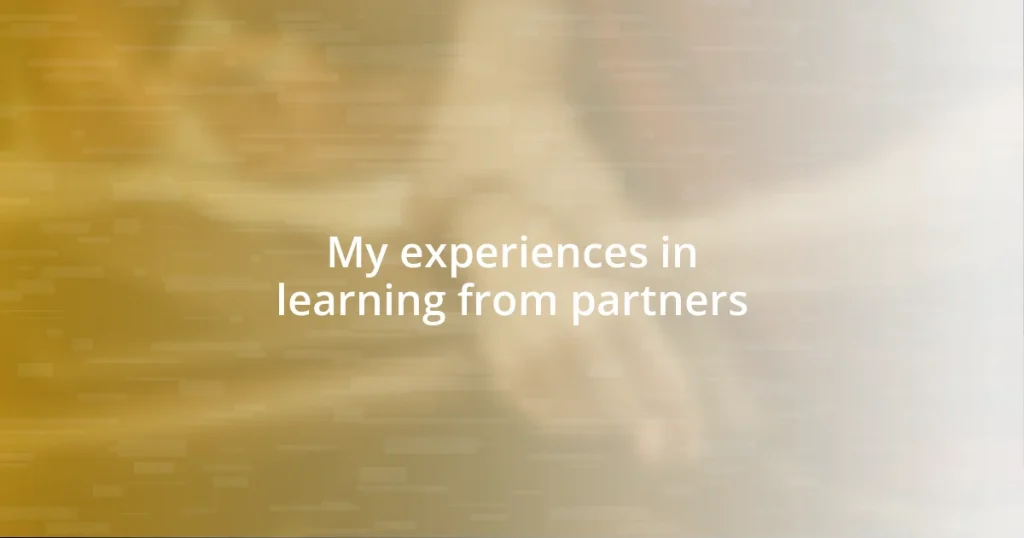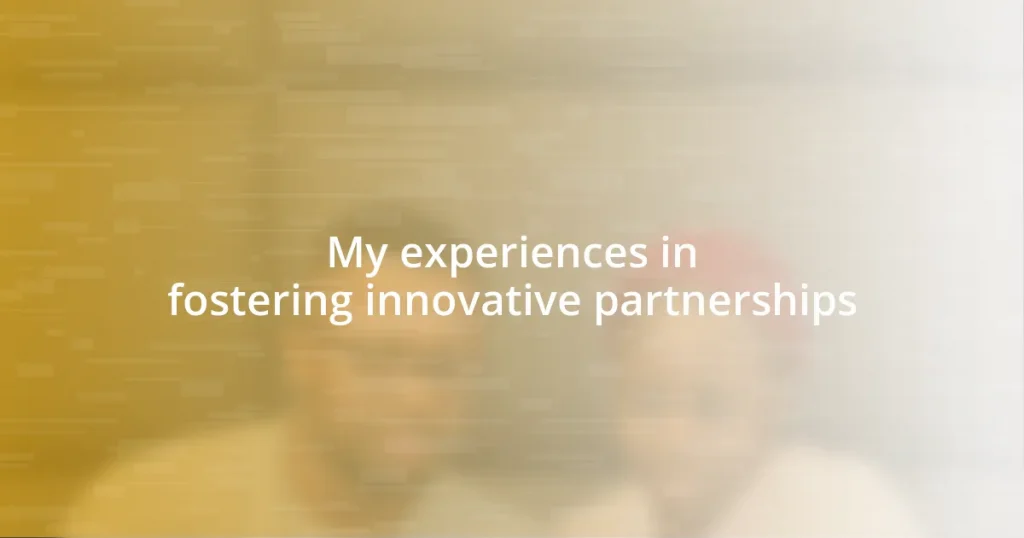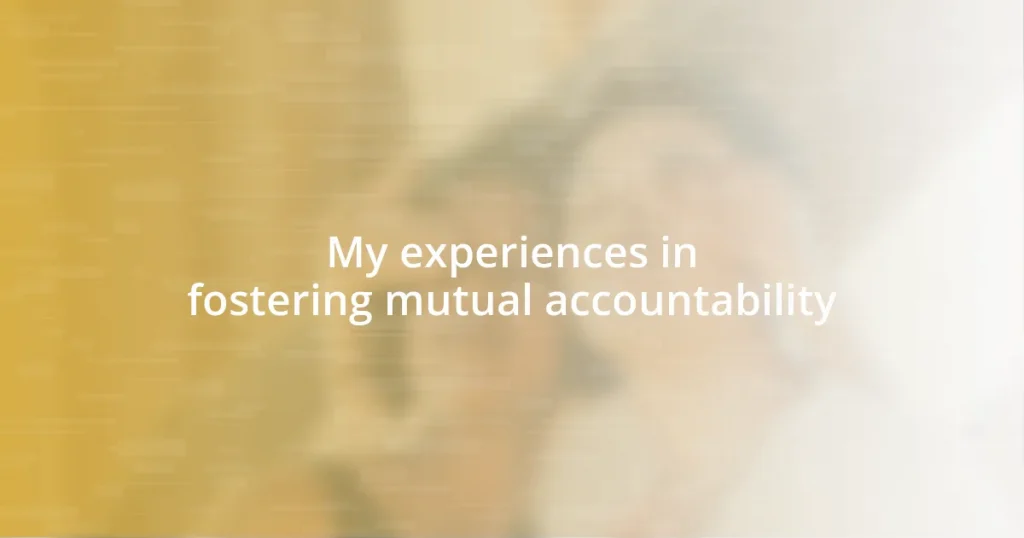Key takeaways:
- Relationships are crucial for personal and professional success, providing support, inspiration, and a sense of belonging.
- Building trust in partnerships requires consistent communication, reliability, active listening, vulnerability, and celebrating achievements together.
- Effective communication techniques, such as active listening and using “I” statements, foster understanding and constructive dialogue.
- Continuous improvement in relationships involves seeking feedback, regular check-ins, and adapting one’s communication style to enhance collaboration.
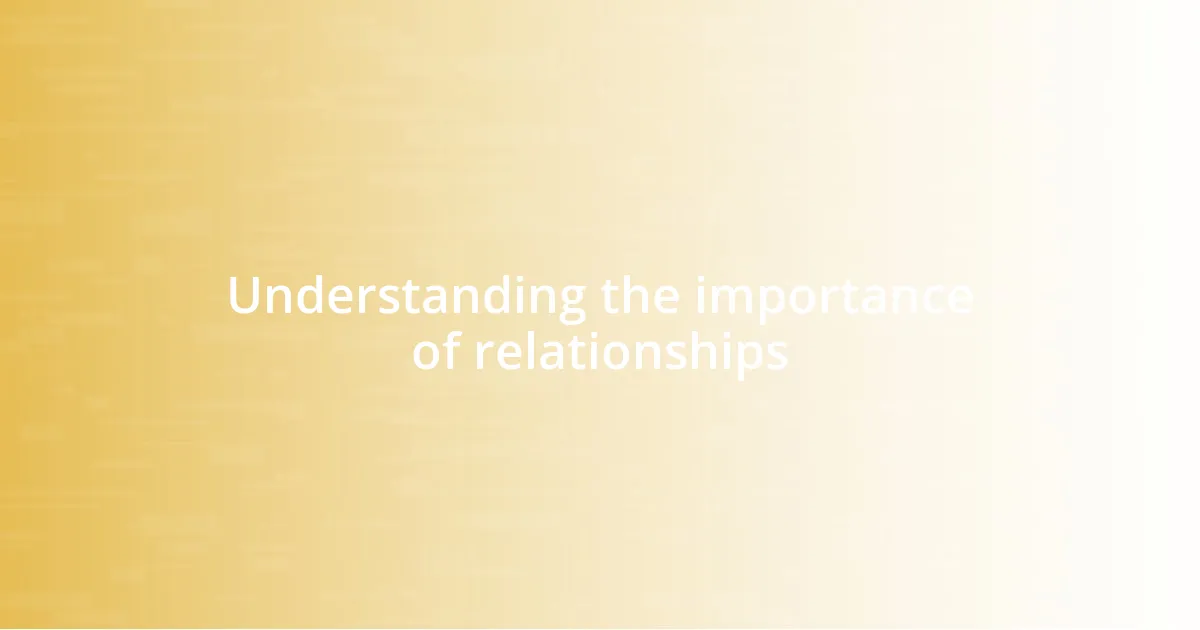
Understanding the importance of relationships
Relationships are the bedrock of our personal and professional lives, serving as a crucial link that can influence our happiness and success. I remember a time when I faced a significant challenge at work; it was my team’s support and understanding that helped me navigate through it. Isn’t it incredible how the bonds we build can be a source of strength during tough times?
When I reflect on my past experiences, I notice that relationships often provide us with a sense of belonging and security. For instance, during a difficult transition in my career, the connections I had cultivated made all the difference. I often found myself asking, how would I have coped without those supportive voices? It’s these connections that remind us we are not alone on our journey.
Understanding the importance of relationships also extends to collaboration and creativity. In times when I’ve brainstormed ideas with colleagues, I’ve seen firsthand how diverse perspectives can spark innovation. Have you ever felt that rush of inspiration come from a simple conversation? It’s a testament to how meaningful interactions can fuel our personal and professional growth.
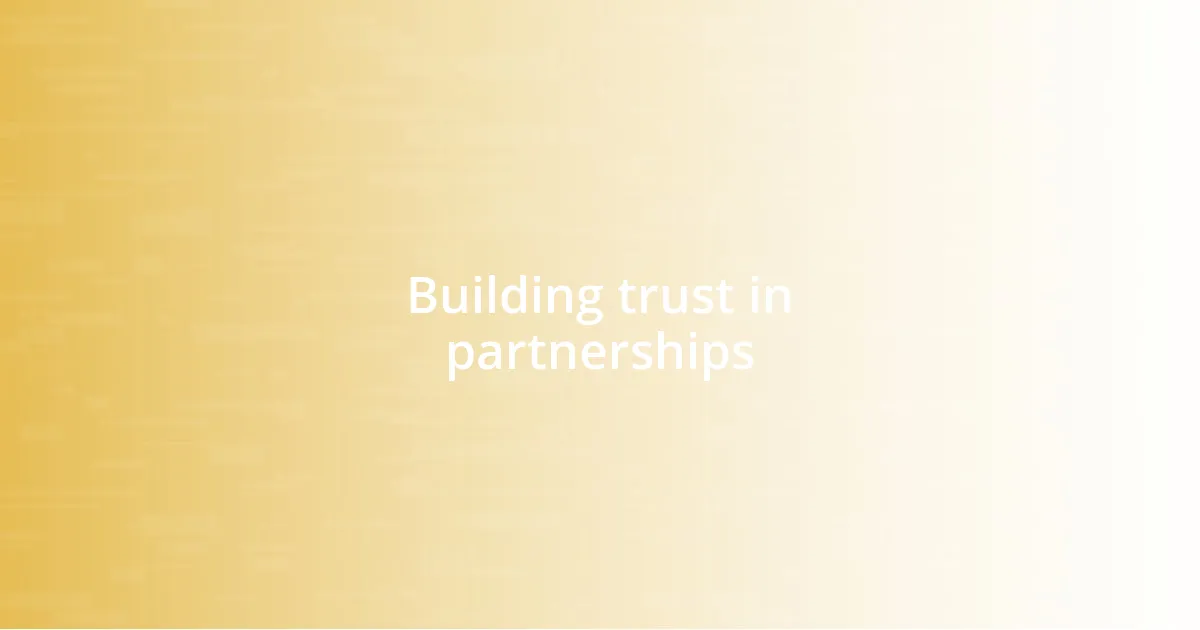
Building trust in partnerships
Building trust in partnerships is essential for creating a solid foundation. I’ve learned that trust isn’t just given; it’s earned through consistent actions and honest communication. Once, during a crucial project, I made a mistake that could have derailed our progress. Instead of hiding it, I chose to be transparent with my team. That moment of vulnerability not only strengthened our bond but also deepened our trust in one another.
To effectively build trust in partnerships, consider these key practices:
- Communicate regularly: Keep the lines of dialogue open to share updates and concerns.
- Be reliable: Follow through on commitments to show you can be counted on.
- Practice active listening: Ensure everyone feels heard and valued to foster openness.
- Share personal stories: Vulnerability can significantly enhance trust by creating connections.
- Celebrate successes together: Acknowledge achievements to reinforce your shared commitment.
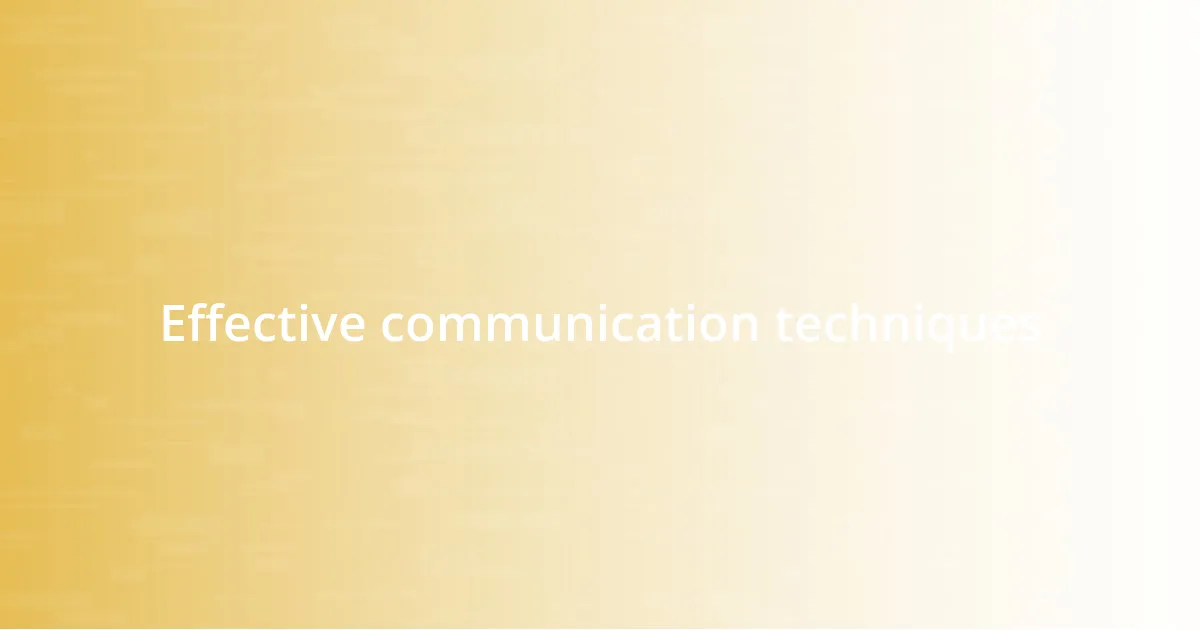
Effective communication techniques
Effective communication techniques are vital in nurturing any partnership. I’ve found that one of the most powerful methods is practicing active listening. It’s more than just hearing words; it’s about fully engaging with the speaker, asking clarifying questions, and reflecting back what you’ve heard. I remember sitting in a meeting where a colleague expressed their frustrations. By actively listening and validating their feelings, not only did I contribute to a solution, but I also made them feel valued and understood.
Another technique that has proven invaluable is the use of “I” statements. For example, instead of saying, “You never listen to my ideas,” I might say, “I feel overlooked when my suggestions aren’t considered.” This approach fosters a more constructive dialogue and reduces defensiveness. In my experience, shifting the focus from blame to expressing personal feelings encourages openness. Have you ever noticed how a simple change in wording can pave the way for understanding?
Finally, maintaining a positive tone throughout discussions can significantly impact communication effectiveness. When I approach conversations with optimism and encouragement, even during conflicts, it lifts the overall mood. I recall a time when addressing a disagreement with a partner; by framing it positively and focusing on solutions, we not only resolved the issue but also strengthened our partnership. Effective communication isn’t just about exchanging information; it’s about connecting on a deeper level.
| Technique | Description |
|---|---|
| Active Listening | Fully engage with speakers, ask questions, and reflect what you’ve heard to show understanding. |
| I Statements | Express feelings using “I” statements to foster constructive dialogues and reduce defensiveness. |
| Positive Tone | Maintain an optimistic approach to discussions to lift the mood and encourage collaboration. |
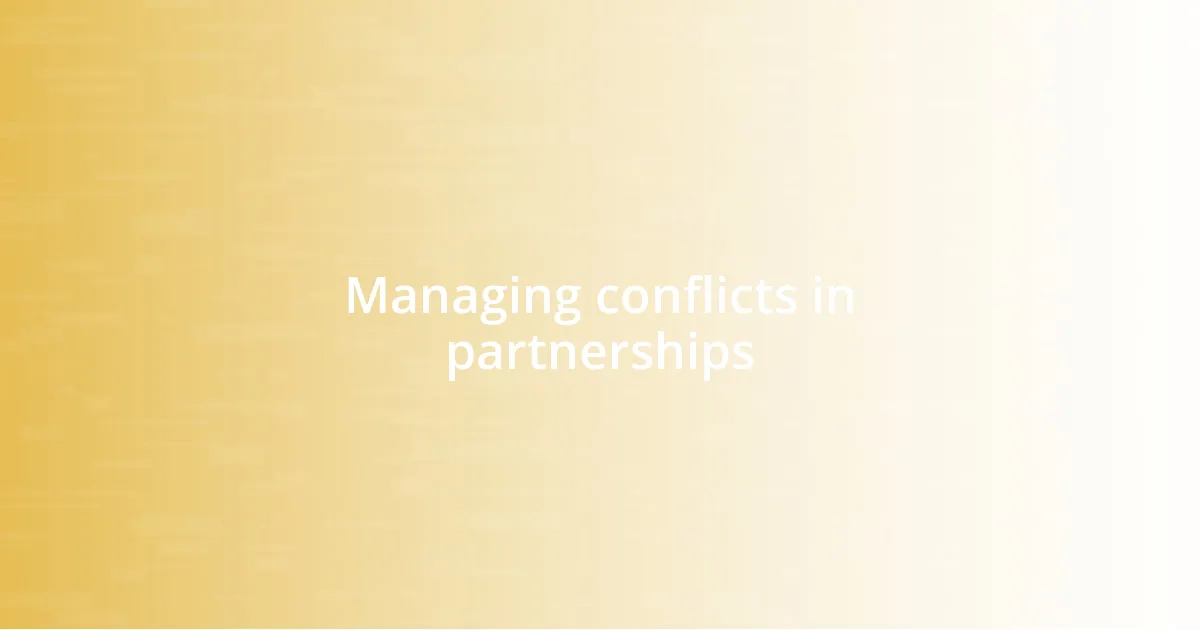
Managing conflicts in partnerships
Managing conflicts in partnerships requires patience and understanding. I’ve faced conflicts where emotions ran high, and stepping back to take a deep breath became crucial. One time, after a heated disagreement, I realized that acknowledging each other’s feelings was the first step toward resolution. It made me wonder: how often do we overlook the emotional aspect in conflict discussions?
Embracing different perspectives can also be transformative. I remember an incident where my partner and I had opposing views on the direction of a joint project. Instead of digging in my heels, I suggested we take turns presenting our opinions. This simple shift not only cleared the air but also led to a richer solution than either of us had initially conceived. Have you ever noticed how exploring each other’s viewpoints can open new avenues for cooperation?
I’ve learned that finding common ground during conflicts is vital for moving forward. Once, after a particularly challenging discussion, we created a shared list of goals. This approach turned the focus away from our disagreements and aligned us toward mutual success. Ultimately, conflicts can be opportunities for growth and deeper connection if handled thoughtfully. How do you navigate conflicts in your partnerships?
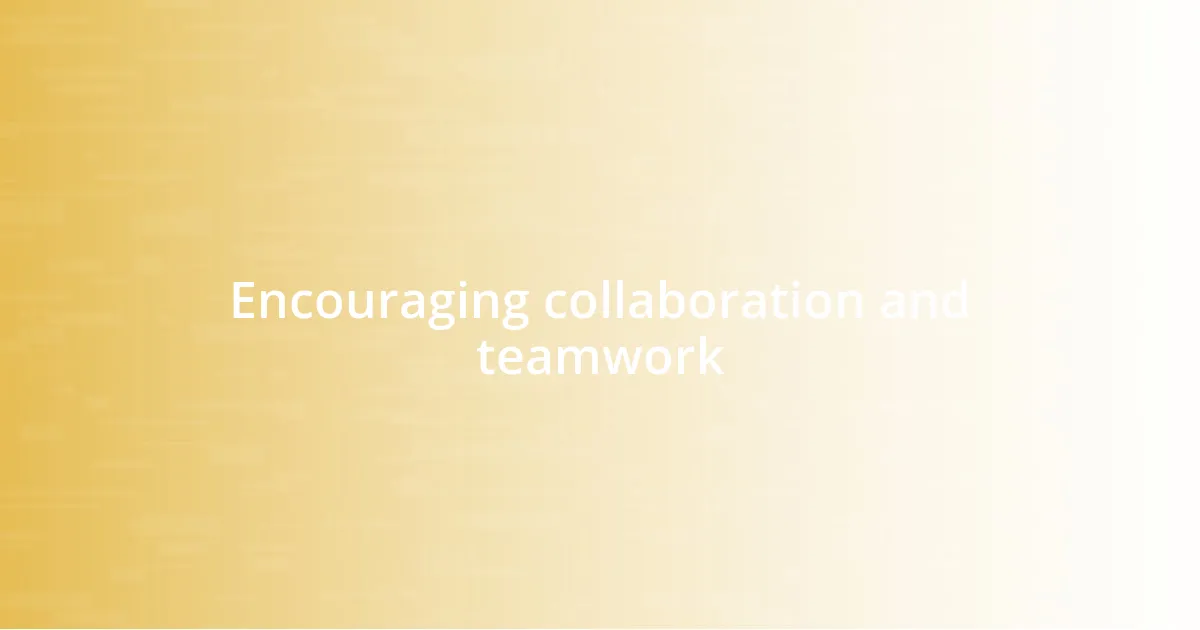
Encouraging collaboration and teamwork
Encouraging collaboration and teamwork starts with creating an environment where everyone feels safe to contribute. I often reflect on a project where I encouraged my teammates to share their ideas openly in our brainstorming sessions. I remember the excitement in the room as people began to build on each other’s suggestions. When everyone’s input is valued, it fosters a sense of ownership and commitment to the group’s goals.
Building trust is another key aspect. I once worked with a colleague who preferred to work independently, hesitant to share their thoughts. I decided to invite them to a casual coffee chat, where they could express themselves in a relaxed setting. By taking that small step, I discovered their brilliant ideas, which not only enriched our project but also encouraged them to engage more in team discussions. Have you ever noticed how a simple conversation can shift someone’s willingness to collaborate?
Additionally, celebrating small wins as a team can strengthen bonds. During a recent project, we set up a system to acknowledge even minor achievements. I remember the joy on everyone’s faces when we celebrated completing a phase of our work. These moments build camaraderie and reinforce the idea that we’re all in this together, which is vital for successful teamwork. How do you celebrate successes in your partnerships?
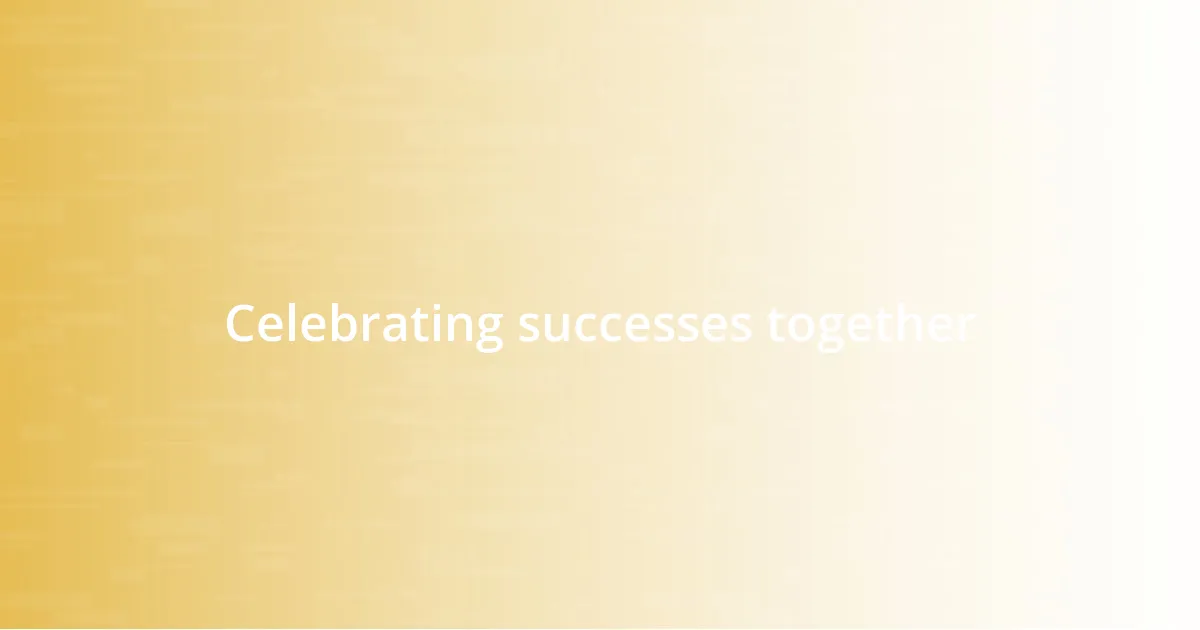
Celebrating successes together
Celebrating successes together can profoundly enhance the dynamics of a partnership. I recall a time when my partner and I completed a challenging project ahead of schedule. Instead of just moving on to the next task, we decided to treat ourselves to a nice dinner. It felt like a small gesture, but in that moment, we recognized our hard work and commitment, reinforcing our bond. Have you ever taken the time to celebrate even minor achievements with your partner? It can make a worlds’ difference.
I believe that public acknowledgment plays a crucial role in celebrating successes. After completing a key milestone at work, I challenged myself to write a heartfelt note praising my team’s efforts. Reading it aloud during our weekly meeting brought smiles and a sense of pride to everyone. It showed them that their contributions were seen and valued. Think about the last time you acknowledged someone’s hard work—how did it affect the team’s morale?
By establishing rituals around celebration, we create lasting memories that strengthen our connections. For instance, my partner and I have a tradition where we reflect on our shared victories at the end of each month. This simple act allows us to appreciate each other’s efforts and strive for even greater accomplishments together. How could adopting a similar practice enhance your partnerships?
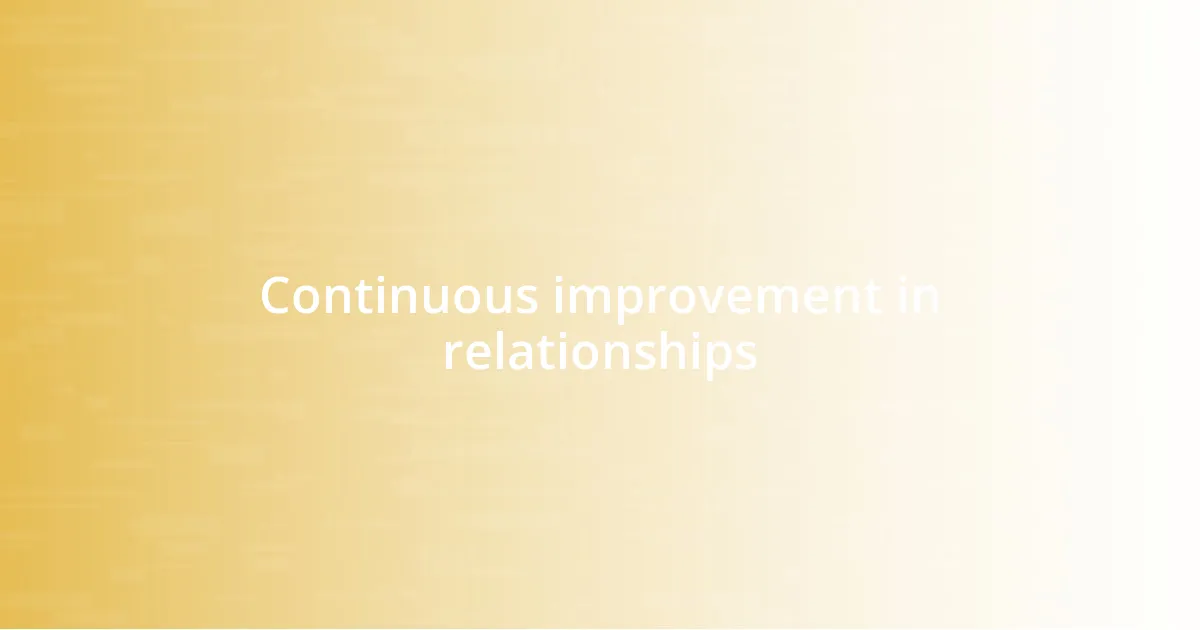
Continuous improvement in relationships
I see continuous improvement in relationships as an ongoing journey rather than a destination. For me, it’s about actively seeking feedback from those involved. I vividly recall a time after a group project when I asked my colleagues for their thoughts on our collaboration. Their insights revealed a few areas where we could enhance our communication. That moment illuminated the importance of being open to growth, reinforcing the idea that improvement is a mutual responsibility. Have you ever sought feedback and discovered something valuable that changed your perspective?
Another vital aspect of continuous improvement is the practice of regular check-ins. In my own partnership, we schedule weekly catch-ups to discuss what’s going well and what needs attention. One evening, while sipping our favorite tea, we identified some communication hiccups that were affecting our workflow. This candid conversation not only resolved issues but also deepened our understanding of each other’s needs. Have you had a similar experience where an honest discussion led to stronger connections?
Lastly, embracing change is crucial for fostering growth in relationships. I once found myself hesitant to adjust my style of communication to better suit a colleague’s preferences. However, after making that conscious effort, I witnessed a remarkable transformation in our collaboration. Their response was profound; they felt more understood and engaged. This taught me that being adaptable can lead to healthier dynamics. How adaptable are you in your partnerships? An openness to change often signals a commitment to continuous improvement.

